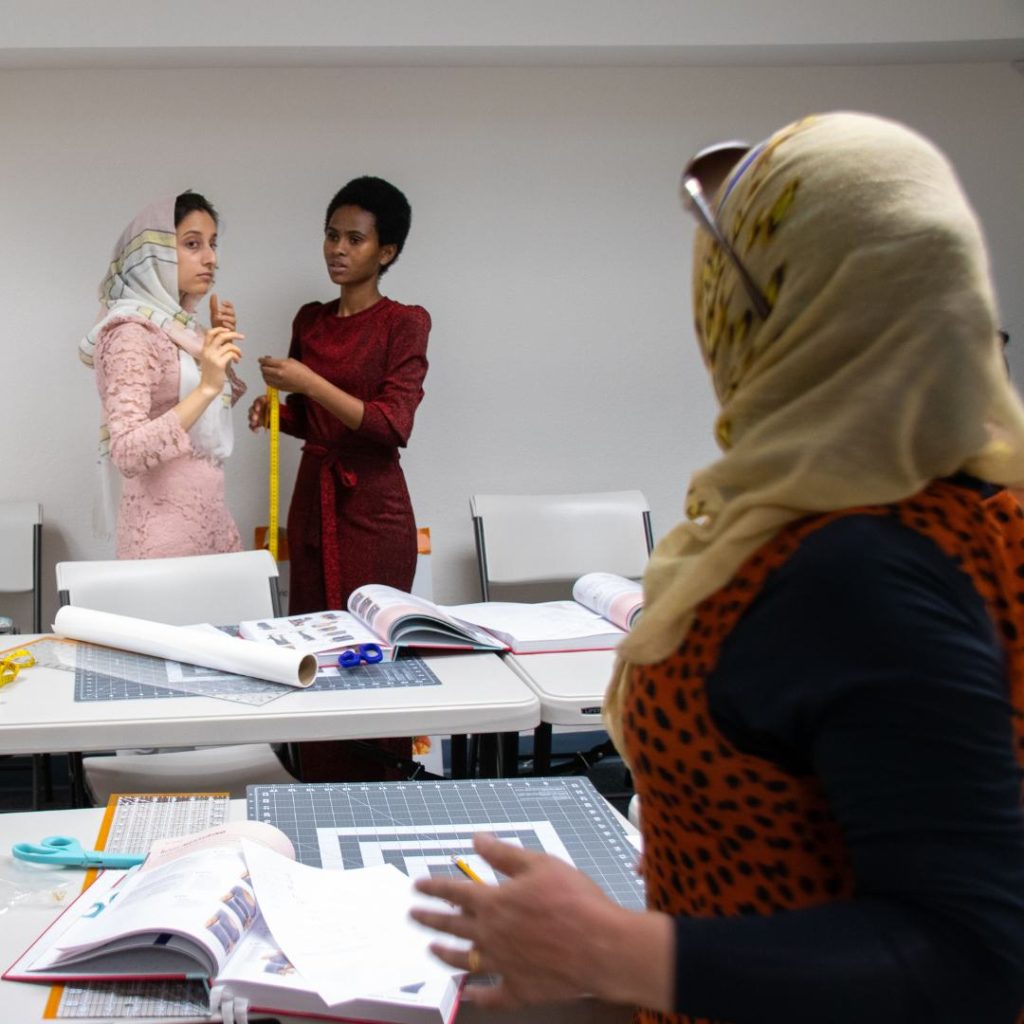Women’s Empowerment seeks to give women agency and decision-making power over their own lives, to instill a sense of intrinsic value that may have been stolen from them, and to ensure their right to influence social change for themselves and others.
To understand the need for Women’s Empowerment, one must understand the oppression from which many female refugees and other female immigrants are fleeing.
Worldwide
- Over 380 million women and girls are living in extreme poverty across the globe. That’s more than the entire population of the United States living on less than $1.90 a day.
- Poverty disproportionately affects women because they do not have as many opportunities as men to receive an education, work, or own property.
- Worldwide, 12 million girls under 18 are married each year.
- 130 million girls remain out of school worldwide. (Global Citizen website)
Democratic Republic of Congo
- In the Democratic Republic of Congo, 52% of women are survivors of domestic violence, and 39% of Congolese women report having being threatened or injured.
- UNICEF estimates that 48.1% of adult women in the DRC are illiterate. (UN Women)
Afghanistan
- In Afghanistan, women are banned from traveling long distances without a male chaperone; they must cover their faces in public and have been instructed to stay home except in cases of emergency.
- Afghanistan’s literacy rate is estimated at 29.8 percent for women, with rural women being less likely to be literate. (UNESCO)
- Currently, 80% of school-age Afghan girls are out of school. Nearly 30% of Afghan girls have never entered primary education.
- Girls cannot go to school beyond sixth grade, with the education ban extending to universities. Women are barred from public spaces, including parks, and most forms of employment. (AP News)
Syria
- Just 14% of women in Syria participate in the workforce compared with 76% of men.
- In Syria, almost 6 million people are in dire need of nutritional assistance – 74 % of them are women and girls.
- Women-headed households are twice as likely to report a complete inability to meet basic needs in comparison with male-headed households. (United Nations Human Rights)
Latin America & the Caribbean
- 1.1 million teenage girls between 15 and 19 have experienced sexual violence or another form of violence.
- Latin America and the Caribbean has the second highest rate of adolescent pregnancy in the world with 63.1 live births per 1,000 births in adolescents between 15 and 19 years of age.
- Maternal mortality is among the leading causes of death for women between 15 and 24. (UNICEF)
In addition to the challenges faced by every refugee and immigrant coming through World Relief, women face a broad range of additional hurdles. They are likely to be extremely isolated. They may not read or write in their own language. Their style of dress may cause them to stand out and receive unwanted attention. Many women coming through World Relief are the primary caretakers for a large number of children. They have never held a job outside the home, never ridden public transportation, or even ventured out of their homes alone on a regular basis.
In addition to our standard resettlement and case management services, World Relief Spokane seeks to address the specific needs of our female clients by creating safe places for them to interact with other newly arrived immigrants and offering classes directed at their specific needs as expressed by them personally.

The Friendship Center, led by manager Melissa Stipek, seeks to address the social needs of clients, especially women, by creating a safe place of welcome and belonging. In addition to regular events like children’s field trips, tea parties and baby showers, the Friendship Center is open to drop-ins seeking help with a variety of needs. Community Ambassadors are available who speak numerous different languages and assist visitors in problem solving or referrals to additional resources.
The Education Services Center provides extended cultural orientation to World Relief clients by designing and implementing needs-based plans and programs to enable them to acquire the knowledge, skills and attitudes necessary to adapt to their new life and achieve self-sufficiency.
Sampling of Classes
- Basic Computer Skills – From how to operate a mouse to how to search the internet and help children with their homework, women learn how to operate a computer and receive a free laptop.
- Conversation Club – Women practice English related to the subjects they need most.
- Driver’s Education – Women receive written and practical driving instruction.
- Textile Arts & Entrepreneurship – Sewing skills combined with how to start a cottage business and contribute to household income.
- Mental Health Workshops – Collaborating with trained practitioners, these workshops offer helpful techniques for self-care and how to identify when women need additional, professional help.
World Relief Spokane staff are committed to providing safe, welcoming spaces for women to gather, to build friendships, to learn skills and to be empowered. But, as we all know, it takes a community. Mature women with life experience are particularly needed as friendship partners and mentors. Join us in this meaningful work by applying to be a volunteer.

